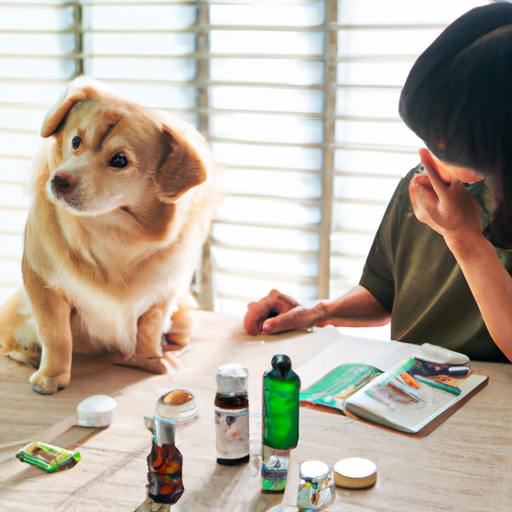Understanding Your Dog’s Itch
Does your furry companion seem to be constantly scratching, biting, or licking their skin? As a responsible and caring dog owner, seeing your pet uncomfortable can be distressing. Itching, scientifically known as pruritus, is a common symptom in dogs and can be caused by a variety of factors such as allergies, parasitic infestations, or skin infections. Before you start treatment, it’s crucial to identify the root cause of your dog’s itching.
H2: Common Causes of Itching in Dogs
The following are some common causes of itching in dogs:
- Flea infestation: Fleas are one of the most common causes of itching in dogs. They are tiny parasites that live on your dog’s skin, feeding on their blood.
- Food allergies: Some dogs are allergic to certain types of food which can cause itching.
- Atopic dermatitis: This is a chronic skin disease associated with allergies to dust mites, pollens, and molds that can make your dog scratch excessively.
- Contact dermatitis: This is caused by contact with certain substances such as certain types of grass, plants, or chemicals.
It’s vital to consult with a vet to determine the root cause of your dog’s itching.
H2: Home Remedies for Dog Itching
In many cases, you can alleviate your dog’s itching with simple home remedies. Here are some ideas:
- Oatmeal bath: Oatmeal has anti-inflammatory properties that can soothe your dog’s skin.
- Coconut oil: This can moisturize your dog’s skin and prevent dryness.
- Apple cider vinegar: Mix equal parts of apple cider vinegar and water and apply it to your dog’s skin.
- Chamomile tea: This has calming properties that can relieve itching.
Remember, while these remedies can help, they are not a substitute for professional veterinary advice.
H2: Over-the-Counter Solutions
If home remedies don’t cut it, there are various over-the-counter remedies you can try. These include:
| Product | Use |
|---|---|
| Antihistamines | To control allergies |
| Topical creams | To soothe and heal the skin |
| Medicated shampoos | To control fleas and ticks |
Always consult with your vet before starting any new treatment.
H2: When to See the Vet
If your dog’s itching persists or worsens, it’s time to visit the vet. Persistent itching can lead to skin infections, hair loss, and hot spots. Your vet can provide a proper diagnosis and prescribe the appropriate treatment which may include prescription medications, allergy injections, or even dietary changes.
FAQs
Q: Can I give my dog Benadryl for itching?
A: Yes, Benadryl is often used to treat itching in dogs, but always consult with your vet first.
Q: Are certain breeds more prone to skin allergies?
A: Yes, some breeds like Bulldogs, Retrievers, and Terriers are more prone to skin allergies.
Q: Can diet contribute to my dog’s itching?
A: Yes, certain foods can cause allergies that result in itching. Your vet can help you identify potential dietary triggers.
Remember, your dog relies on you for their health and wellbeing. By being proactive and attentive, you can help keep your furry friend comfortable and itch-free.



